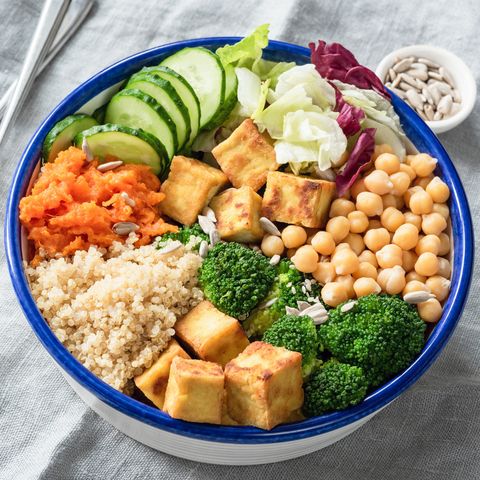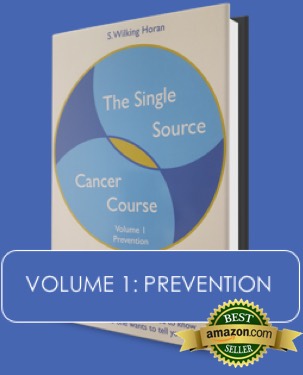 SUPPORTING OUR HEALTH, OUR WALLETS & OUR PLANET
SUPPORTING OUR HEALTH, OUR WALLETS & OUR PLANET
Hello everyone and welcome to another discussion for WHAT’S ON THE MENU MONDAY.
Did you know that 92 percent of the world’s population consume meat on a regular basis and only 8 percent are vegetarians or vegan? Yet, eating less meat is one of the best ways we can protect our health and the health of the planet.
First, just what do we mean by meat? Typically, “meat” refers to animal products like beef, chicken, pork, turkey and fish. For some, it also includes dairy products that are derived from animals like milk, cheese, yogurt and eggs.
In contrast, “meatless” typically refers to plant-based products, which obviously includes all fruits and vegetables.
Now, for most of us any attempt to eliminate meat from our diets completely would seem like an impossible task. And for some of us, doing so might not even be a healthy choice. We’re all different, and what is good for some of us might not be good for others.
Yet, if everything in moderation is our mantra, we can find ways to limit our intake of meat by making wise, creative and healthy choices.
For example, skipping meat just one day a week can make a big difference. Doing so will add up to 52 days a year, 104 days in two years and a whopping 156 days in three. And the benefits add up as well.
A HEALTHIER BODY
Nutrient-rich plant foods like veggies, fruits, seeds, nuts, tofu and beans increase the overall vitamins, minerals, fiber and phytochemicals in our diet. This can improve our digestion, boost our immune system, lower our risk for heart disease, and increase our energy levels. Nuts and nut butters like almond butter and peanut butter are loaded with plant-based protein – and, of course, protein is essential for maintaining and restoring body tissues and muscles. Pair these butters with protein-rich breads made from sprouted grains like Ezekiel bread and you have a perfect protein meal. Beans and lentils also are great sources of protein, as are veggies like peas, edamame, broccoli, and asparagus.
Make a pot of bean, lentil or vegetable soup. Toss a big salad with protein-rich veggies. Add in some dairy like milk, cheese and eggs to balance your meatless meal. There are many wonderful alternatives to meat protein that are flavorful and filling, and will help keep our bodies strong, healthy and fit.
A HEALTHIER WALLET
It’s not just our body that benefits from a few meatless meals, our pocketbook benefits as well. It costs a lot of money to raise livestock. Raising animals for human consumption requires expensive land, fertilizer, water and transportation. These production expenses result in higher costs to the consumer when purchasing meat products than when purchasing plant products like beans, potatoes or soy. For example, a pound of beef can cost about $5.50 and a pound of chicken can cost about $4.00. Fruits and veggies, in contrast, average around $1.00 to $2.00 per pound. Accordingly, consuming more fruits and veggies and less meat can add up to hundreds of saved dollars every year.
In addition, eating less meat can lower our personal medical expenses. As individuals, consuming less meat can reduce our risks and lower our levels of chronic diseases like heart disease, cancer and diabetes. As we become healthier, we will spend less on doctor visits and medicines. And on a larger scale, countries including the United States, will pay less for medical care, which in America alone amounts to about $2 trillion annually.
 A HEALTHIER PLANET
A HEALTHIER PLANET
If every individual in the world skipped meat just one day a week, the eco-friendly effects would be amazing. To begin, every country in the world could save an incredible amount of water. For example, the United States could save an estimated 100 billion gallons of water annually. This is because it takes about 1700 gallons of water to produce a single pound of beef, and only 39 gallons of water to produce a pound of vegetables. In addition, an average of 3 animals a year per person could be saved, which adds up approximately 1.4 billion animals in the United States. This in turn would lower the emission of greenhouse gases equal to 10 billion charged smartphones, according to the Environmental Protection Agency. The necessary transportation to move livestock would also decrease resulting in a savings of about 70 million gallons of gas.
It’s simply staggering how making such a tiny change in our lifestyle can so drastically improve the health of our planetary environment.
And it’s so easy to get started! Why not make MEATLESS MONDAY a staple in your weekly meal planning? After all, our goal is to find practical ways to boost our health while reducing our carbon footprint. And going meatless one day a week accomplishes both!
Thanks again for joining me everyone. Until next time, be safe, stay in GOOD HEALTH and . . .
TAKE THE COURSE AND TAKE CHARGE!



Leave a Comment